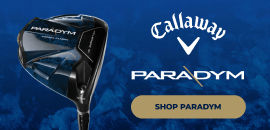Golf Courses
Different types of Golf Courses
Golf courses fall into three basic categories: municipal courses, proprietary clubs and private members’ clubs.
Municipal Courses
Such courses are owned and maintained by the local authorities. They require no membership, operating on a “pay and play” basis. Players are not required to have handicaps.
Proprietary Clubs
As the name suggests, such clubs are owned by a single individual. They generally operate on a membership and visitor basis. Handicaps are not generally required to play at such golf courses.
Private Members’ Clubs
These clubs are owned by the members. Just about all private clubs offer well-maintained facilities and members can play when they like. Bookings from visitors are accepted, but times are often limited and an official handicap is required.
Choosing a Golf Course
In choosing a golf course, there are no right or wrong answers, the choice being dependent on what is sought by each individual. Municipal golf courses, proprietary clubs and private clubs all have plusses and minuses. The following seeks to provide guidelines for choosing the right option.
Golfing Ability
A golfer spends from three to four hours completing a round, so should feel contented that their time / money have been well spent. A beginner taking on a particularly tough course is likely to feel little fulfilment having emptied his bag of balls after two holes. Similarly, an experienced player will get little satisfaction from “destroying” a par-three course.
Cost
Cost is obviously a major factor in choosing from the range of available golf courses. There are huge differences in cost between courses. However, private and proprietary clubs often have special offers at certain times of the day, or in off-peak periods of the year, which can lead to great savings. It makes good sense to research prices, as both private and proprietary courses can be expensive.
Frequency of Play
Municipal golf courses and proprietary clubs are suitable for beginners and infrequent players. They are relatively cheap, requiring only payment of “green fees” (the cost of a round) and can be played at more popular times, often not available at private clubs. Furthermore, for players wishing to try different golf courses, they provide an ideal solution. Conversely, for the regular, year-round player, one of the private courses may prove more appropriate. Most private clubs allow membership fees to be paid by monthly direct debit, and membership will save a great deal of money, given that green fees at good private courses are in the region of £40 per round. Many golfers are also attracted by the social side of a private club. It provides the potential for meeting people with similar interests and making new friends. Most private golf courses host members’ tournaments, which are great fun, and many participate in various leagues, allowing the opportunity to play at various other golf courses.
Pro Shop
Most private and proprietary clubs have a pro shop, run by a PGA teaching professional. However, PGA registration is not a prerequisite for running a pro shop or giving lessons. If contemplating lessons, check the pro’s qualifications. Individual, or less expensive, group lessons are usually available. These can be a great selling point for those seeking to improve their game.
Practice Facilities
On the subject of game improvement, facilities such as a good driving range, practice putting green, chipping area and a practice bunker are also excellent selling points. These can be very useful in improving particular areas of your golf game, or for warming up prior to a round.
CONGU Affiliation
All private clubs are affiliated to the Council of National Golfing Unions (CONGU) which enables them to award official handicaps. Some, but not all, proprietary clubs are also CONGU-affiliated. Golfers wishing to obtain a handicap should check out the affiliation status of the club.
Course Condition and Maintenance
A major consideration at municipal and proprietary golf courses is the condition of the course. It makes good sense to wander around a couple of holes to see if the course appears maintained, with even greens, raked bunkers and repaired divot marks. Poorly-maintained courses are more difficult to play and may discourage the novice. Certainly they won’t provide the quality golfing experience of a course that is well-maintained.
Physical Aspects
The physical nature of golf courses is another aspect to consider. Players who are not particularly fit may not be suited (at least initially) by golf courses that are very hilly. Beginners should avoid seaside “links” courses. Such golf courses provide some of the game’s greatest challenges, the wind blowing off the sea changing speed and direction quickly. The undulating nature of these golf courses, with thick rough, add to the test, and they are best left to experienced players.
The key to finding a suitable good golf course is to explore several local golf courses. Pick the course that best suits your individual golfing requirements and budget. This should make for a more enjoyable golfing experience.
Popular Searches:
proprietary golf club, compare golf membership prices, proprietary golf clubs, what is a proprietary golf club, compare golf courses, golf course comparison, compare golf club membership
Sign Up to hear about the Latest Deals and News from the Golf World.
No Boring Spam! We will only send it, if it’s the absolute mutts nuts!












